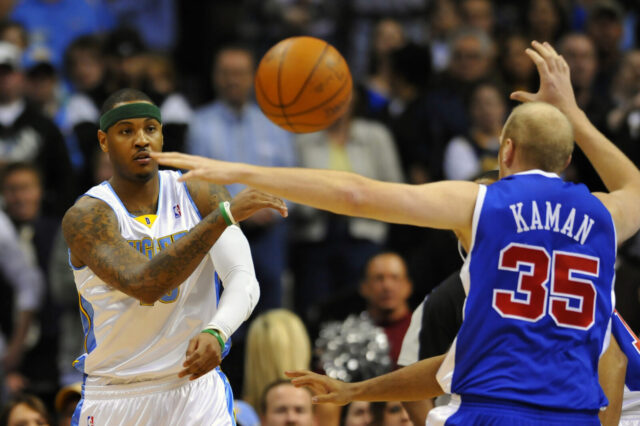If you read this column firstly I thank you, secondly you know I don’t try to bring too much Denver Nuggets into the conversation, but for this week they are relevant to what I want to talk about, at least a little bit. The Nuggets are of course off to a less than fortuitous start to their season with a record of 1-4. Their defense is porous, they can’t seem to rebound, their young star forward is out due to health and safety protocol. Everything seems to be going wrong, the train is already coming off the rails, and yet it’s not quite as bad, percentage wise at least, as being 0-1 in the NFL. The Nuggets have played just 7% of their season. Along the way Nikola Jokic looks like an MVP caliber player, Jamal Murray has found his stride earlier than previous years and COVID complications aside Michael Porter Jr is on his way to being a 20+ point a game player, potentially as early as this season. The Nuggets are right there and they certainly have the talent to get back on track and have a very successful season. They just need to execute better.
It’s an oversimplified way to address what ails a situation. “Just execute better” as if it was that simple. Surely we would all do just that if perfect execution was a matter of flipping a switch. It’s far more complicated than that, but it still remains, in my opinion at least, as the single most important thing to do day in day out. It doesn’t matter what you’re trying to accomplish. It could be getting that next promotion, creating a better relationship with your kids, giving back through volunteerism. No matter what your goal is the path to achieving it will be through executing the day to day steps that inch you closer to completion.
The most important part is belief. Belief in your process, belief in yourself.
We all know that you have to eat the elephant one bite at a time but we rarely focus on figuring out what those bite size pieces look like and how we actually go about eating them. For me, the second biggest key to execution is knowing without a doubt what each step looks like. It’s something I’ve learned throughout my career as an electrician. When I was a first year apprentice wiring single family houses it was simple enough to remember what I needed to do each day. Run these four circuits, install those lights and devices. We’d wire a house in a day, hang lights and install devices in two houses in a day. Everything came in neat and tidy projects that could be completed in a single day’s work and the next day it was on to something new. Fast forward a few years to when I got my first opportunity in project management with a large scale electrical contractor. Projects no longer were completed in an 8 hour period, instead they went for months, even years. There was phase after phase and millions of dollars of material and labor to track. I learned very quickly that everything, and I mean everything, had to be broken down. Everything needed a process, developed, tried and true through experience of those who had it. The only way to come out at the end of the project happy is to organize and focus on each task.
Developing the steps to reaching your goals and understanding the process to executing them is so crucial, but even that thought is oversimplified. Like I said, it’s the second most important part to execution. The most important part is belief. Belief in your process, belief in yourself. That is not something that is always so easy to conjure. We have so many reasons, both real and imagined, to doubt ourselves, to stare what seems like an insurmountable task in the face and be stifled by the immensity of the pressure it exerts. Losing confidence is the overwhelming reason people fail to execute their plans. I was lucky though, I found something early in adulthood that always helped me hold my belief in myself.
Junior year of college was a high stress year for me. I had spent my freshman year partaking in more recreational activities than academic and set the baseline for my GPA at a number that looked more like a percentage point than a grade point average. While I got my act together sophomore year and improved my grades, climbing out of the hole I put my academic standing in during my freshman year was not something that could be accomplished in a couple semesters. So I entered the first semester of junior year on second level academic probation, which is effectively your last chance to get it right. Again, it’s not that I hadn’t improved my grades, it’s that they were so bad freshman year that my cumulative GPA was being dragged down below required levels. In fact, I needed a 3.6 that semester to pull my cumulative GPA above the probation line. I knew this was coming and stacked my fall semester schedule accordingly.
There was no avoiding some tough ones, political economics and applied macroeconomics were slotted for that semester. The first needed to be completed so I could take my capstone in my final year, the second I had been trying to take two semesters now and it finally was being offered in a time slot that worked with my schedule. Those two were going to be tough B’s, so I knew I needed three A’s in my other classes to be able to stay in school. Introduction to Philosophy and Earth Science fit the bill nicely, the last remaining core classes that I had been saving for just such a need. Lastly was the class that ended up having a profound effect on my mentality and forever changed the way I look at building confidence in the face of a difficult task to execute: Introduction to Theatre.
When I realized that failure was truly not an option I was able to put it out of my head. Just like that, the fear was gone.
Acting! Should be easy right? I mean drama class in high school was about as easy of an A as it got. I quickly figured out that was not the case in college. My professor was very serious, very demanding. There’s also this funny thing about acting: you have to be there and know your lines to be able to do it. I probably worked harder on acting class than about 90% of the courses I took in college. Even after I started takign school seriously it was rare for me to spend hours locked in my room studying or working on a project. Even more rare for me to have a classmate come over to help me with something. That happened every week during acting class. It was the only way to do it. If I was going to remember a 100 line monologue the steps along the way meant reciting my lines over and over again. If I was going to make a scene with my class partner not be total garbage it meant I had to actually spend time with them acting it out. Ironically, in a class that was all about faking it you in fact could not fake it.
The semester went about as planned. The two econ classes came in as B’s, Philosophy had so much extra credit it was ridiculous and I’m pretty sure the Earth Science professor wasn’t joking when he said everyone who sat in the first five rows and showed up every day got an automatic A. Acting was coming down to the wire though.
Our “final” was our monologue. Just you, your lines, your character and the audience. I was really nervous to say the least. Oh I had put in the time. I knew my lines front to back, I had thought a lot about my character and found a connection with him that really helped my portrayal have depth and believable emotion. It was all there, but I still worried. What if I forget my lines and skip a part? What if my portrayal isn’t believable? What if anything at all happens that makes me end up with a B in this class that turned out to be way harder than I thought? As I sat there in the back hall, waiting to be called up in front of both my classmates and what seemed like half the theatre department (our professor had invited everyone to attend…just awesome) I found a moment of clarity.
In my moment of fear that I would end up failing and having to face what was for me unthinkable at the time I realized it was just that: unthinkable. Failure could not happen. I was not willing to face flunking out of school. I was not going to flunk out on some silly monologue in an acting class. That. Would. Not. Happen. Almost like a wave, this feeling of relief washed over me. When I realized that failure was truly not an option I was able to put it out of my head. Just like that, the fear was gone. I solely focused on executing what I needed to in order to succeed. I rocked that monologue, I aced that acting class and a year and a half later I graduated with a degree in economics.
When you face a task that you fear may be too difficult for you to overcome, remember to use the bad as your motivation for good. You’re not going to miss out on that promotion, you’re not going to have a bad relationship with your kids, you’re not going to fail to give back as a volunteer. Believe in that, believe in the idea that failure isn’t an option because you have a choice to not allow it to happen and you’ll be damned if you’re not making that choice. You have the power to change your life, to execute the steps to accomplish your goals. You’re not going to let it go any other way, no matter how many times you have to try. Execute, achieve, succeed…it’s the only choice.


